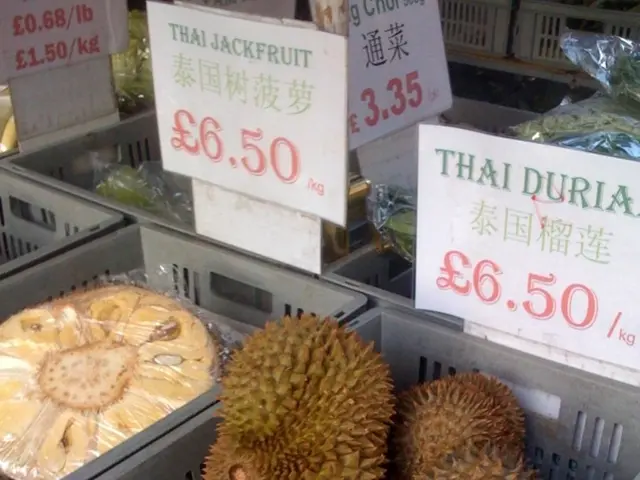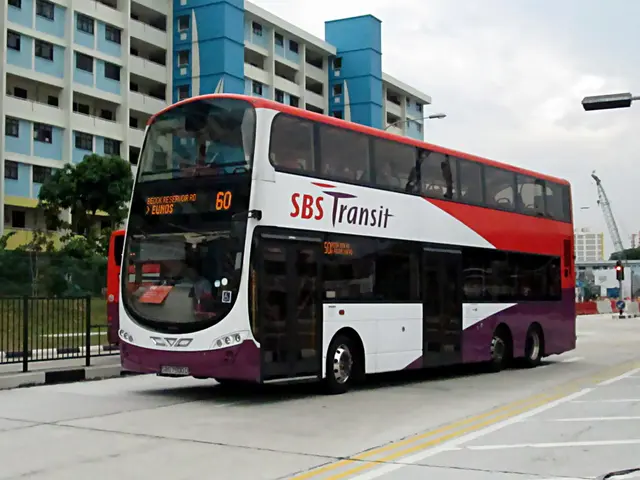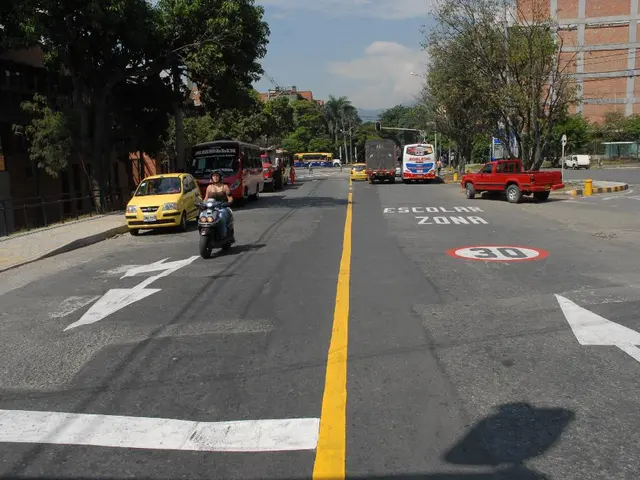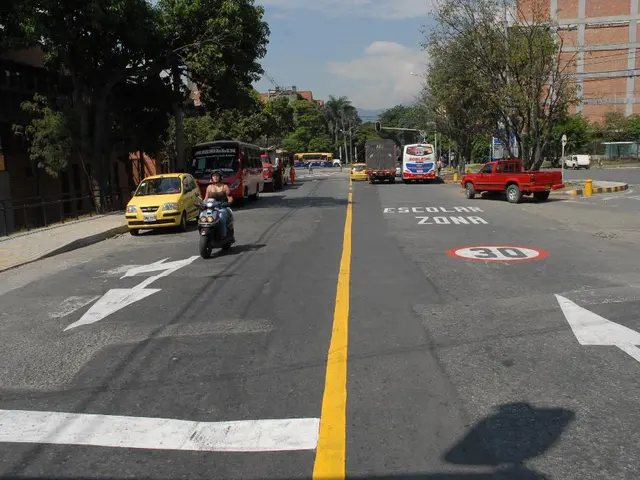Disgruntled expats are packing their bags from Hong Kong and heading to Singapore due to the city's strict coronavirus restrictions and lack of a clear reopening plan.
Thirty-three-year-old fashion buyer Fong, who has lived in Hong Kong for four years, is one of those considering returning home. She expressed frustration with the city's Coronavirus restrictions and the absence of a roadmap for reopening.
"Singapore definitely has a better plan," Fong said.
Fong is not alone in her dissatisfaction. For years, both Hong Kong and Singapore have aimed to become Asia's premier global economic hubs. However, with international borders in the Chinese city effectively closed, some companies and foreigners are growing weary of the situation and looking southwards to Southeast Asian centers instead.
Some businesses are already weighing the pros and cons of using Singapore as a central business hub for Asia, especially as the Chinese government begins to exert more control over Hong Kong. However, with the pandemic looming, control over the virus is top priority.
As many Asian countries have adopted a "Zero-COVID" strategy that emphasizes social distancing, travel restrictions, and isolation of non-residents, Hong Kong falls firmly within this category. Travelers arriving in the city face one of the longest quarantine periods globally, with hotel stays lasting between two to three weeks.
Singapore initially followed a similarly strict approach but recently shifted towards a strategy of "Living with COVID-19." The government announced easing of some regulations and plans to reopen international travel to certain countries like Germany. The city-state even allows individuals to self-quarantine at home for up to 14 days.
Singapore's strategy has faced challenges due to the resurgence of Delta variants, temporarily delaying reopening plans. Critics also point out that unlike Hong Kong, Singapore still maintains various other restrictions, like limiting public gatherings to two people until August, which poses challenges to daily life.
For many Hongkongers, things look greener on the other side of the South China Sea.
Frederik Gollob, chairman of the European Chamber of Commerce in Hong Kong, believes Singapore has an edge due to its signaled intention to put an end to stifling pandemic restrictions, even if progress stalls.
"It's definitely of advantage," Gollob said to CNN Business. "It's happening right now while we're talking."
Gollob revealed that he knows of multiple cases where top management in companies are considering relocating some operations to Singapore due to quarantine restrictions shacking up their plans, as well as waiting for lease renewals. Out of respect for confidentiality, he declined to name the companies.
While Singapore is making strides, uncertainty looms over many companies as they wait for freedom of movement and lack the ability to plan ahead.
"This moving or not moving torpedo is exactly the problem... The last thing companies hate is uncertainty," Gollob added.
Pressure mounts on Hong Kong's government. In August, Gollob wrote an open letter to Hong Kong's Chief Executive Carrie Lam, urging the city to act sooner rather than later to avoid extended quarantine measures.
"This strict quarantine regime could lead many in the international community to wonder whether they want to be stuck in Hong Kong for an uncertain period while the rest of the world moves on," Gollob wrote.
Hong Kong reported zero local COVID-19 cases on August 17 and has consistently reported only a handful of cases daily, all imported from abroad.
"The question is, what do we do? Do we aim for zero COVID-19 cases? We have zero local cases," Gollob, who represents over a dozen foreign trade chambers, said. "We're well aware that someone... has a different perspective on the current situation."
Some leaders have expressed concerns privately to the Hong Kong government about the impact of prolonged quarantine on businesses. According to sources close to the matter, the leader of a large European company recently warned Hong Kong's trade minister Edward Yau about the company's intent to shift a significant portion of its business activities to Singapore due to quarantine restrictions.
"This is an attempt to show the government that it's not just talk but something is happening," the source explained, requesting anonymity due to confidentiality concerns.
Singapore's benefits
Hong Kong's handling of the pandemic has been successful, maintaining zero local cases for over 21 days, while registering a surge in coronavirus cases in Singapore. Singapore reported an average of 334 new cases daily from early September.
Singapore's government has emphasized that though maintaining its vision of a business-friendly environment is critical, it remains in high alert. The city also boosted its global position as a regional technology conference host by restoring the RISE conference, which it lost to Malaysia in 2021, due to its ability to combat the pandemic effectively.
Unlike many other cities, Hong Kong has yet to fully reopen borders, and some travelers still need to quarantine upon arrival. The Chinese mainland and Macau have still not responded to Hong Kong's easing of travel restrictions, meaning most travelers continue to face quarantine upon arrival in these areas.
"I don't think the local population would be as enthusiastic about ending quarantine as foreigners might be," Qiu said.
Immunization rates in Hong Kong, while impressive, have only reached 66% compared to more than 80% in Singapore. The discrepancy is partly due to the seven months of free COVID-19 vaccinations Hong Kong offered, which unlike Singapore, have not proved universally popular. Critics assert that the slow adoption of the vaccine has limited the city's ability to manage the pandemic efficiently.
"Our local vaccination rates are not satisfactory," Qiu's team stated.
The situation, meanwhile, is not without its tribulations. Headhunters in Hong Kong have reported finding it difficult to attract new talent to the city without offering remote work options, a challenge that other Asian cities have easily overcome.
"There is a certain reluctance," Jaya Dass, managing director for Singapore and Malaysia at Randstad, a large human resource consulting firm, said. "There is a change in sentiment due to political events, such as the introduction of the controversial national security law, which has sparked concern among the expat community."
Some financial services companies and international institutions, such as the New York Times' digital news operations in Asia and investment platform Motley Fool, have reduced their presence in Hong Kong in recent months due to concerns about the national security law.
Singapore, on the other hand, remains a popular relocation destination for some businesses and individuals. Some technology leaders, like Facebook and Netflix, have considered Singapore as their regional headquarters, while financial services giant Citibank and Deutsche Bank have set up major operations there.
Singapore's relative ease in managing the pandemic, paired with its more relaxed quarantine restrictions compared to Hong Kong, have attracted talent and businesses looking for a less restrictive and more predictable environment.








